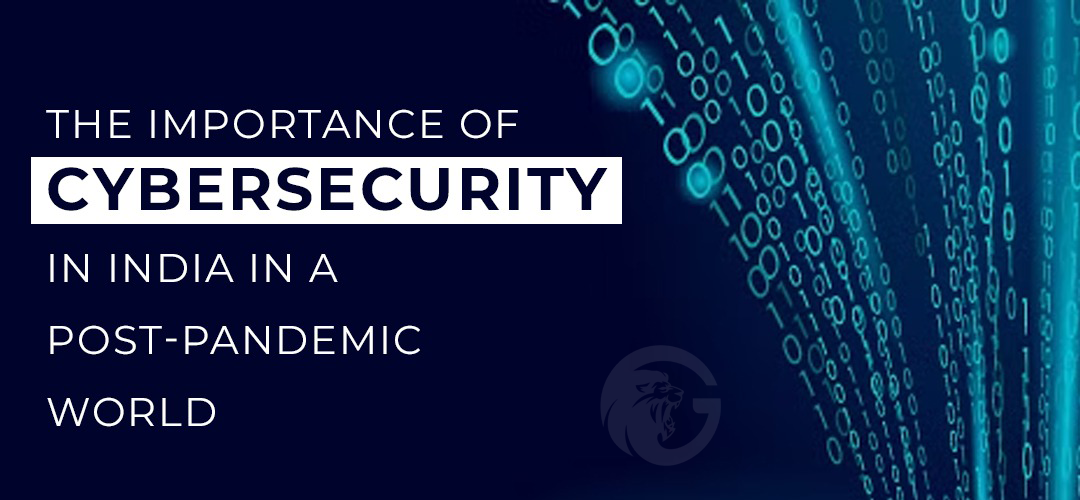The Importance of Cybersecurity in India in a post-Pandemic World
Due to the pandemic, organisations had to evolve rapidly and move to a hybrid work model. While this resolved one set of challenges in terms of health and well-being, it brought a new set of problems, one of which was cyber security in India.
In the last decade, the number of cyber-attacks in India and the world has constantly been rising. Cyber security has been assessed to be a USD 6 trillion problem that needs to be addressed on various levels. As per a report by IBM, the cost of a data breach for any organisation can be valued at around USD 3.86 million.

The Impact of WFH Models
When millions of employees from various organisations worked from home, all the data was transmitted using insecure networks. It led to a spike in security cases and the risk of data being hacked and asking to pay millions in ransom for recovery.
As per a recent study by Vehere, over 64% of organisations experienced at least one cyber-attack incident, resulting in a financial loss, fines and a significant setback in business. For almost 38% of companies, the losses were in millions of dollars, and all of them expressed the need for additional firewalls and increased protection in the long run. The number of cyberattacks using new malware or methods was 20% before the pandemic and went up to 35% during the pandemic. In fact, 47% of professionals fall for phishing scams while working from home. In addition, the video conferencing norm led to almost half a million employees’ personal data being breached and sold on the dark web from February to May 2020.
Thus, for any business, big or small, data security remains at the top of the mind for leaders, managers, and entrepreneurs. As digitalisation becomes the norm and cybercrime rates increase, it’s critical for businesses to embrace end-to-end security with cyber resilience.

The Key Types of Cyber Attacks
As businesses exploit modern technologies to unlock digital revenue opportunities and boost enterprise efficiency, it also exposes them to various risks. One of the critical problems is identity and information theft. The other bothersome cyber challenges include ransomware attacks, IoT (Internet of Things) attacks, cryptocurrency and blockchain attacks, phishing, and cloud attacks. Enterprises must prepare and protect themselves and their customers from these cyber-attacks in India and ensure complete security of all their assets – on-premise and on the cloud. According to the US Treasury, enterprises spent over USD 600 million in ransomware payments in just the first half of 2021.
The impact of Covid-19 on cyber security in India has been significant enough for every business to rethink its security measures. This is because traditional systems no longer work in a hybrid working model, especially when digital is the default for almost every enterprise.

What Can you Do for Better Cyber Security in India?
Companies must interact with external entities every day to collaborate, reach digital customers and survive in a competitive world. While it offers new opportunities, it introduces new vulnerabilities, too. It would help if you had better tenets of defence to protect your data and assets. Businesses must be prepared for new types of cyber attacks, especially in a remote or hybrid working model.
A few things businesses can do to shift the focus to cybersecurity in their organisation:
- Choose a licensed antivirus and malware software for all employees and devices
- Brief your team about cybersecurity with various awareness sessions
- Ensure that employees are vigilant when opening emails to prevent phishing
- Use a VPN as a barrier against cyber attacks
- Identify the weak spots of your IT infrastructure and work on strengthening it
- Review and renew business continuity and crisis plans
- Use advanced tools to reinforce security in remote working scenarios
- Apply governance, risk and compliance solutions for enhanced risk management
- Consider implementing a zero-trust approach for cybersecurity
While cyber security in India is more enhanced in recent times, companies must invest in the finest measures and be proactive in addressing threats. At Globalion, we offer cyberattack detection, response and recovery capabilities if your business is under threat. For all other companies, we focus on empowering your enterprise with a strong network and tight security to address the gaps in cybersecurity.
Want to rethink your strategies for cybersecurity in India? Talk to our experts today!
Email: support@globalion.in


